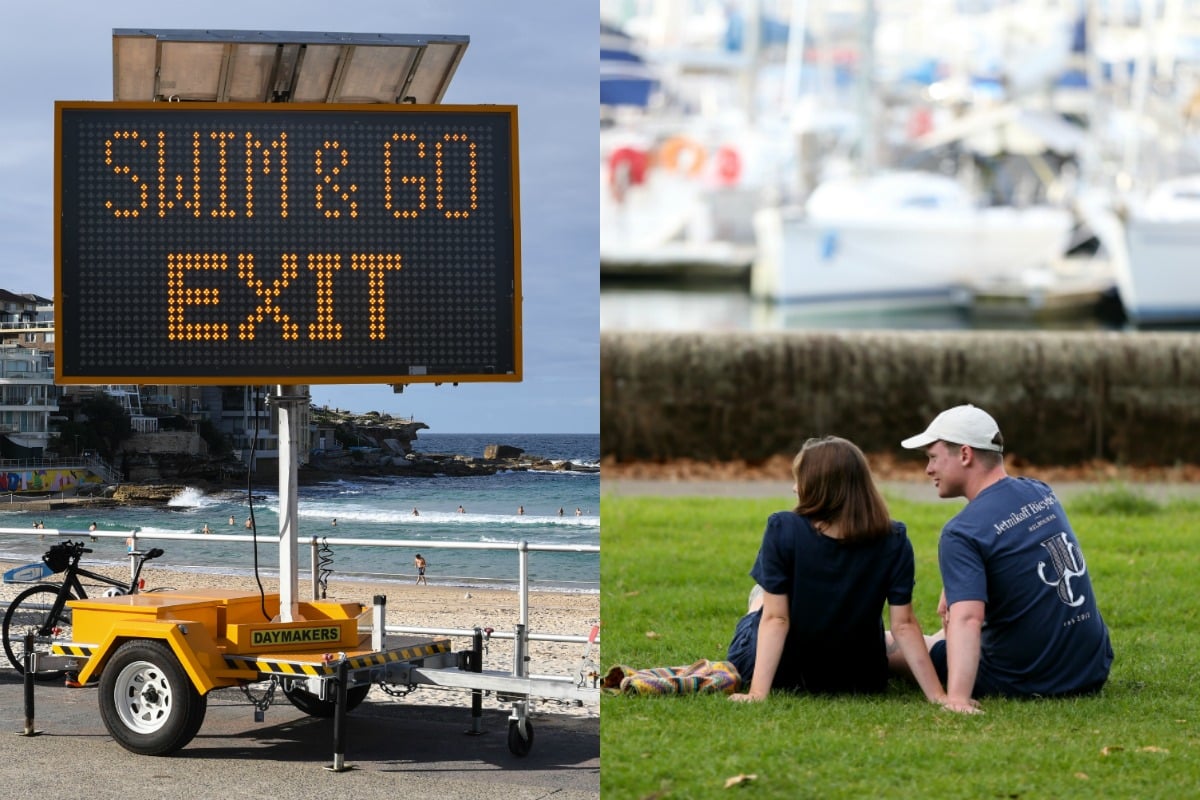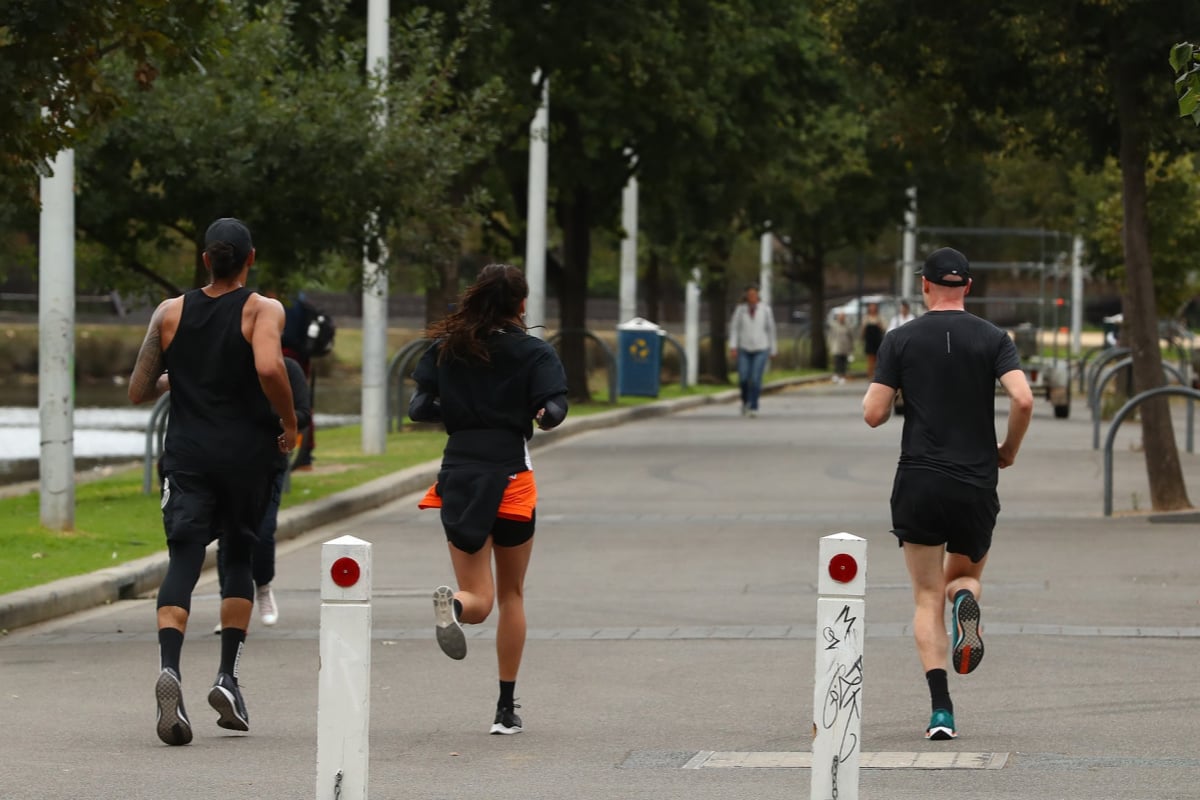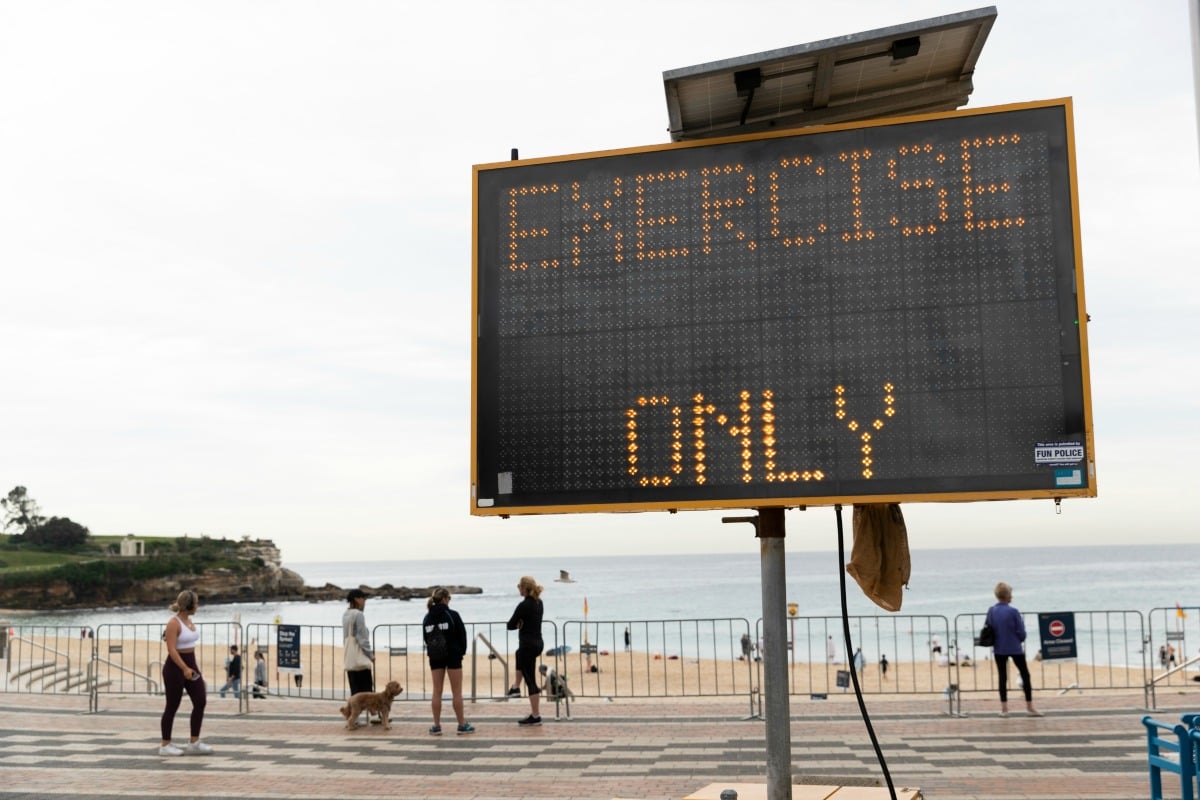
By now, social distancing and isolation feels like the new normal.
We’re closing in on two months since COVID-19 lockdowns began in some way, and as Australia succeeds in flattening the curve, officials in each state have made decisions to either ease some measures or hold firm on the rules for a while longer.
As different states and territories enforce and lift different rules, it can be confusing to decipher what you can legally do right now – and where.
We’ve broken it down state-by-state to explain what the current social distancing measures mean for you.
Can I visit have my partner, family or a friend or have social guests?
All states allow you to leave home for the purpose of exercise with one other person, which means you can meet your partner or friend in public to exercise together.
The federal government is recommending those over 70, those with chronic illness over 60 and Indigenous people over 50, self-isolate as much as possible.
NSW: As of Friday 1 May up to two adults and the children in their care will be allowed to visit another person’s home in NSW. These visits must be for “care” reasons, however this definition has been broadened, so visiting friends would be considered beneficial for mental health and would fall under “care”.
Victoria: You may visit your partner under an exemption to the no social visits rule, the Victorian health officer confirmed on Twitter. Generally, you cannot visit family unless for care or compassionate reasons.


